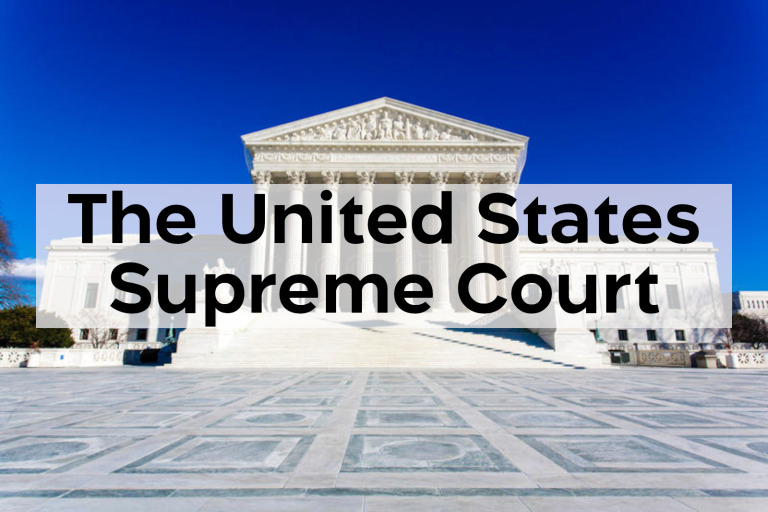DISCLAIMER: Altiorem Legal Services (hereinafter, “Altiorem”) cannot and does not provide legal advice. Altiorem is not a law firm; Altiorem’s staff are not attorneys, cannot act as attorneys, and do not act as attorneys; and any information provided by Altiorem in this article or otherwise is not a substitute for legal advice from an attorney. The information contained in this article should not be construed as legal advice, as it is not intended to be legal advice; the information in this article is provided for educational purposes only. Again, none of the information provided in this article should be construed as legal advice, and nobody should rely on or use the information contained in this article in their legal matters.
1. What is a power of attorney?
Nobody wants to think about getting injured or becoming incapacitated.
However, accidents do unfortunately happen, and there might be a time in one’s life when one cannot perform daily activities such as going to the bank or selling a car due to being too injured or too sick to perform said activities. This is where a power of attorney comes into play.
A power of attorney is a legal document in which a person—a principal—gives to another person—an agent or authorized agent—authority to act on behalf of the principal.1Utah Courts, Power of Attorney, https://www.utcourts.gov/howto/family/power_of_attorney_general/ (last visited Aug. 18, 2022)
An example of a power of attorney would be having one’s agent make bank deposits and/or withdrawals from one’s account or having an agent sell a specific piece of property (house, car, television, etc.) for the principal. The agent can also help with financial affairs.
The agent is responsible for acting in the highest regard toward the principal, and they cannot use the principal’s assets in any way that would be against the principal’s wishes.
2. Why should I have a power of attorney?
A power of attorney is an important document that allows an agent to handle a principal’s financial matters, among other things, without needing more complex arrangements like a trust, court-appointed guardian, or conservator.2See Id.
Additionally, a power of attorney can help protect against possible financial exploitation and abuse.
Things like a trust, court-appointed guardian, or conservator require additional responsibilities that remove a person’s decision-making authority.
A power of attorney can also apply for benefits if the principal cannot. An agent in a power of attorney can file insurance claims, appeal insurance denials, and even contract health care services like an in-home nurse, meals on Wheels, assisted living, or hospice, on behalf of and in the principal’s best interest.
The agent would be responsible for paying the principal’s bills and helping ensure that things do not default while the principal is incapacitated.
Without a power of attorney, a family may have to ask the court to appoint a guardian for the incapacitated principal. Appointing a guardian takes time and is expensive; it also puts unnecessary hardships on one’s family because the family might not know what the principal would want.
3. Are there different types of power of attorney?
There are different types of power of attorney.
One specific type of power of attorney is a financial power of attorney. This type of power of attorney allows an agent to manage the business and financial affairs of the principal. These powers include the ability to sign checks on behalf of the principal, as well as to file tax returns and/or make or change beneficiary designations.
Another type of power of attorney is a health care power of attorney. This power of attorney gives the agent authority to make health-related decisions for the principal. This power of attorney becomes effective when the principal can no longer make health-related decisions on their own. The agent is responsible for overseeing medical care decisions on behalf of the principal.
A general power of attorney allows the agent to act on behalf of the principal in any and all matters allowed by state laws.
A limited power of attorney gives the agent the power to act on behalf of the principal in specific matters or events. For example, if the principal says that the agent can only manage the principal’s retirement account or if the agent has authority in a power of attorney for only a certain time frame.
4. What can an authorized agent do for me?
An agent is appointed by the principal to administrate the duties contained in the power of attorney document.
The agent must act at all times for the benefit and in the principal’s best interest, not for themself.
An agent must:
- respect the principal’s wishes;
- act only in the principal’s best interests;
- keep separate the principal’s funds from the agent’s own funds;
- comply with the terms of the power of attorney;
- manage all assets of the principal carefully;
- remember that the assets belong to the principal;
- keep good and accurate records of everything spent or received throughout the scope of the power of attorney; and
- act only within the scope of authority granted in the power of attorney.3See Id.
A principal may also nominate in the power of attorney a conservator or guardian to be appointed by the court if the principal is ever determined to be incapacitated.
Under Utah Code § 75-9-114, an agent that acts in good faith is not liable to any beneficiary of the principal’s estate plan for failing to preserve the plan.
An agent that acts with care, competence, and diligence for the principal’s best interest is not liable solely because the agent also benefits from the act or has an individual or conflicting interest in relation to the property or affairs of the principal.
5. Can I change authorized agents?
Can one change the authorized agent(s) in a power of attorney? Yes, an authorized agent can be changed. A principal can change or revoke a power of attorney at any time. To change a power of attorney, one must essentially do all of the things one did to initially establish the power of attorney. The change must be in writing, signed, and notarized, and at the time of the change, the principal must understand that they are appointing an agent to handle their affairs.
If the power of attorney is revoked, it must be dated and signed in writing, but it does not need to be notarized. The agent must receive a copy of the revocation.
6. How do I execute a power of attorney?
In Utah, in order to execute a power of attorney document, it must be signed by the principal before a notary public. If the principal cannot physically sign the document, another person acting at the principal’s direction and in the principal’s conscious presence may sign the document before a notary public.4See Id.
7. Does a power of attorney ever terminate?
Does a power of attorney end? Yes, there are a few instances where a power of attorney can become terminated. These instances include things such as:
- if the principal dies;
- if the principal revokes the power of attorney;
- if the power of attorney states when it will be terminated;
- if the purpose of the power of attorney is accomplished;
- if the agent dies or becomes incapacitated;
- if the agent resigns; or
- if an action is filed for the dissolution or annulment of the agent’s marriage to the principal or their legal separation unless the power of attorney otherwise provides.
8. Can next of kin override a power of attorney?
Can the principal’s next of kin—i.e., the principal’s closest living relative or relatives—override the principal’s power of attorney? No, a power of attorney cannot be overridden by next of kin or other family members. No legal authority is bestowed upon the next of kin or family members to override or nullify an existing power of attorney.
CONTACT US TODAY!
Do you need help with a power of attorney? Let Altiorem help you today with affordable, top-quality legal services.
Expertise. We are knowledgeable, skilled, and experienced in the process of powers of attorney and in drafting all manner of legal documents, such as briefs, pleadings, motions, memoranda, letters, contracts, etc. If you need a top-quality, professional, excellently written, well-researched, and compelling legal document drafted, then look no further!
Quality. We produce top-quality, properly written legal documents with impeccable grammar, punctuation, spelling, structure, flow, information, compelling legal arguments, and persuasive legal conclusions. You can see the quality of our work on our work samples page, where you can peruse and evaluate our writing, as well as our other blog posts.
Experience. Our paralegals are highly experienced in working with attorneys, other paralegals, and court personnel.
Customer Care. Navigating the Utah legal system can be daunting and confusing. Let Altiorem relieve your stress and be your guide. Altiorem has a team of professional paralegals ready to work for you. We want to give you the best chance at getting an outcome for your case that you will be happy with. We are happy to receive documents via email from you, speak with you on the phone, look through court files, or even translate documents (English / Spanish)!
Accessible. If you are interested in retaining our services, we can be contacted at (801) 855-6541 (text or call) and at altiorem@altioremlegalservices.com. If you have a project in mind that you would like us to work on, please click here to send us a project request and get a quote. Alternatively, you can send us an email detailing the work you need to be performed, and a real person will respond promptly.
Thank you for your attention and consideration.



